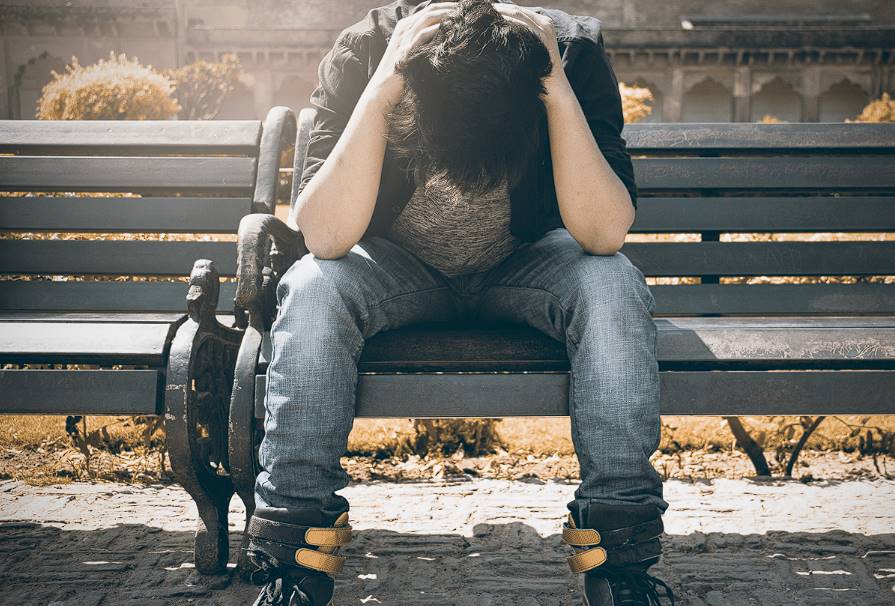In a world where addiction and dependency are often only a whisper away, the battle to regain control can seem like an insurmountable mountain. Drug addiction is a dark shadow that can loom over the most unexpected of lives, and the road to recovery is fraught with challenges and setbacks.
Traditional paths to healing frequently involve rehabilitation centers, an environment filled with expert care and support. But what if that's not an option for everyone? What if circumstances, fear, or personal beliefs make rehab unattainable or undesirable?
Facing Addiction: The Journey to Overcoming Drugs and Alcohol
Understanding the Challenge of Addiction
Addiction isn't merely a bad habit that one can give up easily. It's a genuine illness and can be treated as such. Trying to abandon drug or alcohol dependency alone can result in harmful withdrawal symptoms, relapse, or even lead to severe mental health issues. Therefore, many medical professionals recommend seeking support from a dedicated treatment centre instead of going it alone.
The Importance of Professional Support
Think twice before attempting to quit drugs or alcohol without professional help. The challenges faced during withdrawal can be dangerous and unpredictable.
Lack of accountability or robust support might lead you back to old habits. Even if you have reservations about seeking professional assistance, due to stigma, costs, or personal circumstances, a rehabilitation centre might still be the right choice. Always consult with a medical expert before making any decisions.

Withdrawal: What Happens to the Body?
When an individual stops or reduces the consumption of harmful drugs, the body may react with withdrawal symptoms, also known as detox. This is due to long-term drug use affecting the body's natural functions, leading to increased tolerance and physical dependence on the substance.
Some drugs, like methamphetamine and cocaine, boost the body's functions and energy levels. Stopping these substances can cause a "crash," leaving the person feeling depressed, anxious, and fatigued.
Identifying Withdrawal Symptoms
The severity and duration of withdrawal symptoms can vary significantly among individuals. Factors affecting these symptoms include:
- Mental health history
- Physical make-up
- Chosen substance
- Tolerance level
- Duration of substance use
Withdrawal symptoms can be challenging to predict, so it is wise to consult with healthcare professionals to decide the safest method for detoxification.
Obstacles in Seeking Professional Assistance
Several factors might deter individuals from seeking professional help, including:
- Denial of Need: Misconceptions about one's addiction can prevent seeking professional help.
- Stigma: Mental health stigma can lead to shame, yet there's no shame in seeking help.
- Economic Concerns: Worries about costs shouldn't deter individuals as various payment options are often available.
- Employment Fears: Legal protections are in place to secure employment during rehabilitation.
- Location Challenges: Treatment availability varies by location, but solutions can be found.
- Misbeliefs and Delays: Myths and waiting times should not deter individuals from seeking the help they need.
The Benefits of Rehabilitation
Going to rehab is a crucial step in ensuring long-term recovery. The advantages include:
- Medical Oversight and Support: Essential for a safe and effective recovery.
- Withdrawal Medication: Tailored treatment to ease symptoms.
- Individualised Care: Comprehensive plans that consider concurrent mental health conditions.
- Healthy Nutrition: Balanced meals to support healing.
- Relapse Prevention: Strategies to support long-term recovery.
- Distraction-Free Environment: An isolated, structured setting conducive to recovery.
- Insurance Options: Many centres accept insurance, making treatment more affordable.
- Aftercare Plans: Strategies for life post-rehab to ensure ongoing success.
The journey to overcoming addiction is complex but achievable with the right support and guidance. If you or someone you know is struggling with addiction, professional help is available and often the best choice for a safe and lasting recovery. Your health and well-being are worth the investment, and the first step is to seek the advice and support of a trained medical professional.

Conclusion
Addiction is a difficult and complicated problem that can cause bad withdrawal effects, relapse, and serious mental health problems. It is important to get help from a treatment centre if you want to get over an addiction. Withdrawal symptoms, also called detox, can be different for each person and depend on things like their mental health background, physical make-up, the substance they chose, their tolerance level, and how long they used the substance.
Opportunities for seeking professional assistance include denying need, stigma, economic concerns, job fears, location challenges, and misconceptions and delays. Rehab is important for long-term recovery because it offers medical supervision and support, customised withdrawal medications, individualised care, a healthy diet, ways to avoid relapse, an environment without distractions, insurance options, and aftercare plans.
The road to recovery from addiction is long and hard, but with the right help and direction, it is possible to get well and stay well. The first step in getting over an addiction is to get help and advice from a trained medical official.
Content Summary
- Drug addiction is likened to a shadow, unpredictable in whose life it might affect.
- The road to recovery from addiction is filled with challenges and setbacks.
- Traditional paths to overcoming addiction often involve rehabilitation centres.
- For some, rehab may be unattainable or undesirable due to various factors.
- Addiction is recognised as a genuine illness, not just a bad habit.
- Quitting drug or alcohol dependency alone may result in harmful withdrawal symptoms.
- Attempting to quit without professional help can lead to relapse or mental health issues.
- Medical professionals often recommend dedicated treatment centres.
- Withdrawal from drugs can be dangerous and unpredictable.
- Lack of proper support might cause a return to old habits.
- Stigma, costs, or personal circumstances might deter seeking professional help.
- A rehabilitation centre could still be the right choice, despite reservations.
- Medical experts should be consulted before making a decision on quitting drugs.
- Withdrawal symptoms, or detox, are the body's reaction to stopping drugs.
- Long-term drug use affects the body's natural functions, causing dependence.
- Drugs like methamphetamine and cocaine can cause a "crash" when stopped.
- The crash may cause feelings of depression, anxiety, and fatigue.
- The severity of withdrawal symptoms varies significantly among individuals.
- Several factors, such as mental health and substance choice, affect withdrawal symptoms.
- Consulting healthcare professionals is essential to decide on safe detox methods.
- Some individuals might deny the need for professional help due to misconceptions.
- Mental health stigma can lead to shame and deter people from seeking help.
- Economic concerns and worries about costs might be obstacles to treatment.
- Legal protections exist to secure employment during rehabilitation.
- Treatment availability might vary by location, but solutions can be found.
- Myths and waiting times should not stop individuals from seeking help.
- Rehab is considered a crucial step for ensuring long-term recovery.
- Benefits of rehab include medical oversight and support for recovery.
- Withdrawal medication and tailored treatment ease detox symptoms.
- Individualised care in rehab considers concurrent mental health conditions.
- Rehab offers balanced nutrition to support the healing process.
- Strategies are in place for relapse prevention, which is essential for ongoing recovery.
- Rehab provides a distraction-free, structured setting conducive to recovery.
- Many rehab centres accept insurance, making treatment more affordable.
- Aftercare plans post-rehab are crucial for continued success.
- The journey to overcoming addiction is complex but achievable with support.
- Professional help is usually the best choice for safe, lasting recovery.
- Health and well-being are worth the investment in professional treatment.
- Seeking advice from trained medical professionals is the first step in recovery.
- Lack of accountability without professional support might lead back to addiction.
- Some individuals feel reservations about seeking professional assistance.
- Withdrawing from certain substances can alter body functions and energy levels.
- Myths and misunderstandings about addiction can prevent seeking help.
- Various payment options for rehabilitation are often available.
- Addiction and dependency are depicted as being only a whisper away.
- Professional support is stressed as vital in overcoming drugs and alcohol.
- The content emphasises understanding the true challenge of addiction.
- The importance of identifying withdrawal symptoms is highlighted.
- Various obstacles deter individuals from professional help, such as location.
- The content concludes with a positive note on the achievability of overcoming addiction with the right guidance and support.
Frequently Asked Questions
Rehabilitation is a method of helping a person reach their highest level of functioning, autonomy, and standard of life. Rehabilitation doesn't undo or fix the damage caused by disease or trauma. Instead, it helps people regain their health, functioning, and well-being.
Occupational, physical, and speech therapy are the three main types of rehabilitation therapy. Each type of rehabilitation helps a person get better, but the end goal is always the same: to help the person get back to a healthy, active life.
The Recovery Stage
The Recovery Stage is the first part of physical rehabilitation. This is the most important part of the treatment process, and it can also take the longest, depending on how bad your injuries are. The goal of this first stage is easy to understand: to rest and let your body start to heal.
The key to getting back strength and mobility in an injured area is to do the rehab exercises. So, there must be days of rest in between; nothing will get done without them. This is because the muscles don't have enough time to heal.
Most rehab centres offer group therapy sessions based on the original 12-Step method. Most sessions last between 60 and 90 minutes. The group talks about the 12 Steps to give a sense of working as a team to reach a common goal.




















